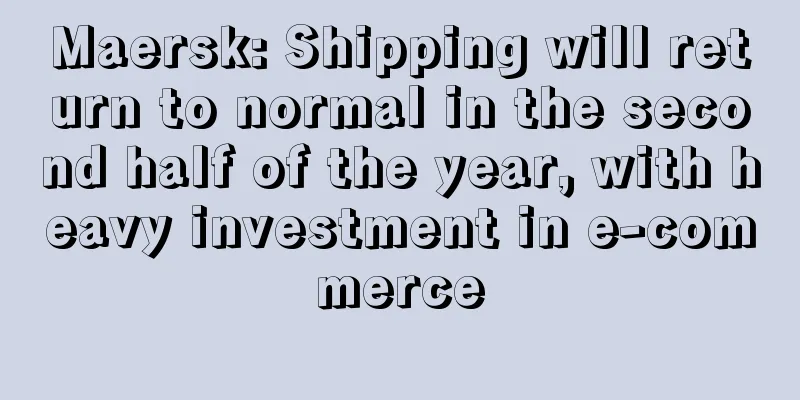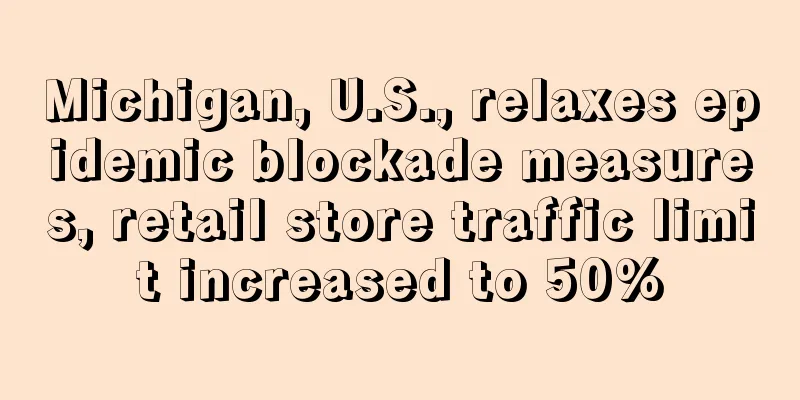Google joins hands with GoDaddy to seek new development in e-commerce

|
Since the outbreak of the epidemic, Google has been expanding its e-commerce business. Recently, Google announced a partnership with GoDaddy, an American company that provides domain name registration and Internet hosting services.
Google said: "Now it will be easier for users to see GoDaddy businesses through search, shopping, image search and YouTube. Through this partnership, GoDaddy merchants can upload their products to Google, create free advertising campaigns, and see the corresponding results. And all this can be achieved only through GoDaddy's online store."
The operation process is simple and sellers benefit significantly
GoDaddy merchants only need to create their product listing pages on the backend dashboard and link them to the Google Merchant Center. Google will automatically synchronize relevant information and optimize the page display effects for different Google products. Afterwards, the big data system will push these products to users who are searching and browsing related products .
Imagine that if the seller's sales market is the United States , their products can appear on Google Search, Google Images, Google Shopping, Google Maps, Google Lens and other pages for free . I believe this will make many Amazon sellers envious, after all, improving search rankings and product exposure is a headache. Google's move is undoubtedly a huge benefit for sellers, not only can it save a lot of advertising costs, but also can bring unimaginable exposure. In this way, it is difficult not to sell the goods!
Google is taking action to expand markets and develop features
According to the editor, the cooperation with GoDaddy is just part of Google 's blueprint to expand its e-commerce sector. The platform had a similar cooperation with Shopify as early as May this year . In addition, Google also hopes to develop the function of product push based on image search to increase retailers' loyalty to the Google Shopping channel .
At the same time, Google is also considering integrating the shopping cart history information collection function, the purpose of which is to collect the products that users have added to the shopping cart during browsing and remind users in a timely manner. This functional plug-in is also a way to maximize the sales of merchants. However, we cannot assert the specific effect, and the evaluation of consumers is the standard for judgment.
Google's constant pursuit of new partners, exploration of new cooperation models, and development of new features are enough to show the giant's determination to expand e-commerce. As for how the industry landscape will change in the future, let time answer the question. Google e-commerce expansion Independent website |
<<: OnBuy completes £35 million in funding to compete with Amazon
>>: Export risk warning to Indonesia, Indonesia becomes the new "epicenter" of the epidemic in Asia!
Recommend
Surpassing Temu, SHEIN has the highest appearance rate in TikTok topics!
Since appearing on TikTok , shopping unboxing vid...
What is Amazon Europe Renovation Project? Amazon Europe Renovation Project Review, Features
Platform Introduction Amazon encourages sellers t...
With the flourishing of e-commerce platforms in North America, sellers no longer have a single choice!
According to a survey by foreign media , offline ...
Another product made in China has been recalled. Clothing sellers should be careful!
Children's safety issues are of great concern...
What is cukke.com? cukke.com Review, Features
Cukke.com is a complex independent B2B platform th...
What is ROHS certification? ROHS certification Review, Features
ROHS certification refers to the EU Restriction o...
Shein packaging bags are popular on TikTok, bringing new business opportunities to sellers!
Shein probably didn't expect that she would b...
Online consumption in Malaysia soars, LazMall sales surge
According to foreign media reports, according to ...
What is inspiredhouseholdshop? inspiredhouseholdshop Review, Features
inspiredhouseholdshop's main product categorie...
Companies with 100-person teams have closed down one after another, and the year-end layoffs in the cross-border industry are coming
A seller in Guangzhou whose account was blocked s...
What is China United Shipping Co., Ltd.? China United Shipping Co., Ltd. Review, Features
China United Shipping Co., Ltd. is committed to be...
What is tool4seller? tool4seller Review, Features
tool4seller is an Amazon seller tool that automati...
What is MobPartner? MobPartner Review, Features
MobPartner is an entrepreneurial service platform ...
What is Snoopy Supply Chain? Snoopy Supply Chain Review, Features
Snoopy Supply Chain Management Co., Ltd. is deter...
What is Simba Technology? Simba Technology Review, Features
Simba Technology is a technology company speciali...









